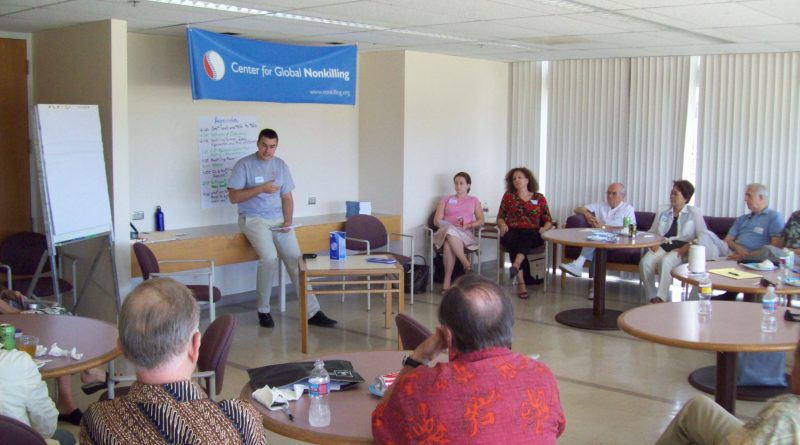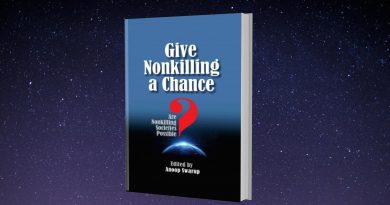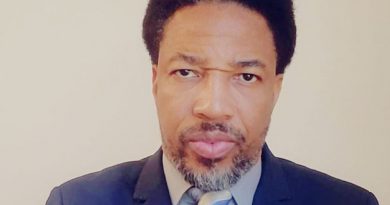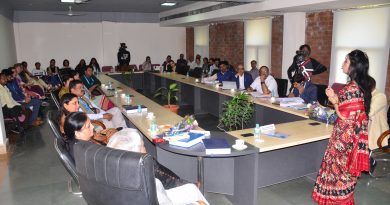Second Interdisciplinary Exploratory Seminar on Nonkilling Research Held in Honolulu
On Friday, May 7, 2010 the Interdisciplinary Exploratory Seminar on Nonkilling Research met in Honolulu. After reviewing the updates on CGNK activities since the last meeting, a general discussion took place which included the following: Biennial Peace Research Meetings like the International Peace Research Association (IPRA) would be good forums for nonkilling to be in on a regular basis. Another member noted that he was interested in improving the community we live in. He urged attention to civil unions, rights deprivation, and jail suicides. The group was urged not to forget to mention in Nonkilling Hawaii the weapons of mass destruction. Others mentioned the rise in ethnic tension and gang violence.
A focal point of the meeting was a discussion about Nonkilling Curriculum. Les Sponsel talked about his method and experience of building an Anthropology class around Nonkilling concepts. He pointed out the nonkilling learning resources available on the CGNK website. Students enjoyed Glenn’s book and the Paradigm Shift book as well. Les found that it is opening up a whole new world for the students. After the initial readings and discussions, he had the students prepare a series of panel discussions (Amish, Yanomami, etc.). Les told of the powerful question that emerged after a presentation about the Amish reaction to the killing of 10 people in their community. Students wondered why we the US couldn’t respond more like the Amish to the killing on 9/11. “The Amish culture closely follows the teachings of Jesus, who taught his followers to forgive one another, to place the needs of others before themselves, and to rest in the knowledge that God is still in control and can bring good out of any situation. Love and compassion toward others is to be life’s theme. Vengeance and revenge is to be left to God.” Les felt that the course offered more involvement and hope to the students and they could see amazing possibilities. The group chuckled when it was posited that Glenn Paige is the greatest threat to security, as it is presently conceived.
The response to the course included several members commenting that Sponsel’s curriculum was terrific but that his reach was limited. It was suggested that CGNK organize an online course. Also it was suggested to do it on a low tech basis. (See the most dangerous man in the world.) Is it resource wars? Another member thought a better model would be to first gather online and then face-to-face. Perhaps a conference (blended learning) could happen in Honolulu—maybe even tie it into a short course in summer (Victor Kobayashi) said he would be happy to help make this happen.
During the general discussion, panel discussions might be good for the future on topics like domestic violence. The group was astonished to learn that up to 50% of calls taken by the Honolulu Police Department were for domestic violence. A concern was voiced that there tends to be a focus on killing vs. nonkilling and that we needed to talk more about Empathy. The Dalai Lama has written recently about it in Ethics for a New Millennium. The group also felt that it was important to do some branding for Nonkilling. Put more emphasis on Empathy. (Ex.—when began using the word nonviolence, it became paired as “Nonviolence and the Presence of Justice.) There is a sense that iinadequacy is core – lack of caring or not enough caring for one another. Empathy is a neglected theme in Social Sciences. No one has seriously tried to measure care for each other. Caring is community. It is a healthy community. From a planning perspective there is physical design, human infrastructure, and social capital. We need more than Resilience, because rresilience is maintaining your stance. Adaptability means you may have to shift your stance. Transformability means utterly changing. Sustainability = Transformability+Adaptability+Resilience (S.T.A.R). We need mitigation for vulnerable communities. Resilience is a big concept for Samoa in how to mitigate the physical and psychological damage from disasters.Empathy and caring are different.You don’t start with empathy, you construct it. We might consider pursuing an interest in nonkilling through aesthetics. Learning how to read a situation you are in and see what is wrong with it. Connect to the notion of structural violence (e.g. domestic violence). The connection to abstraction – may be part of the problem – it creates confusion. (Ex. US response to 9/11) – has to do with empathy and caring. It also has to do with epistemology. Nonkilling offers this.
The Interdisciplinary Group will meet on a quarterly basis, so stand by for more titillating discussions.




